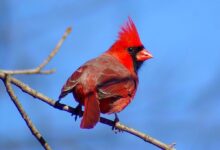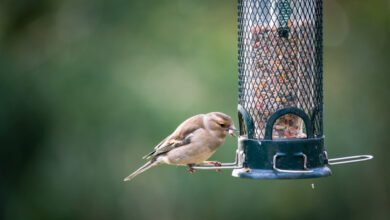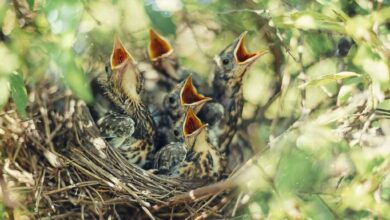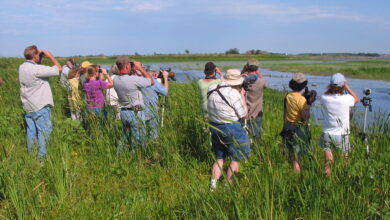Guide to Parrot Care: From Feeding to Training
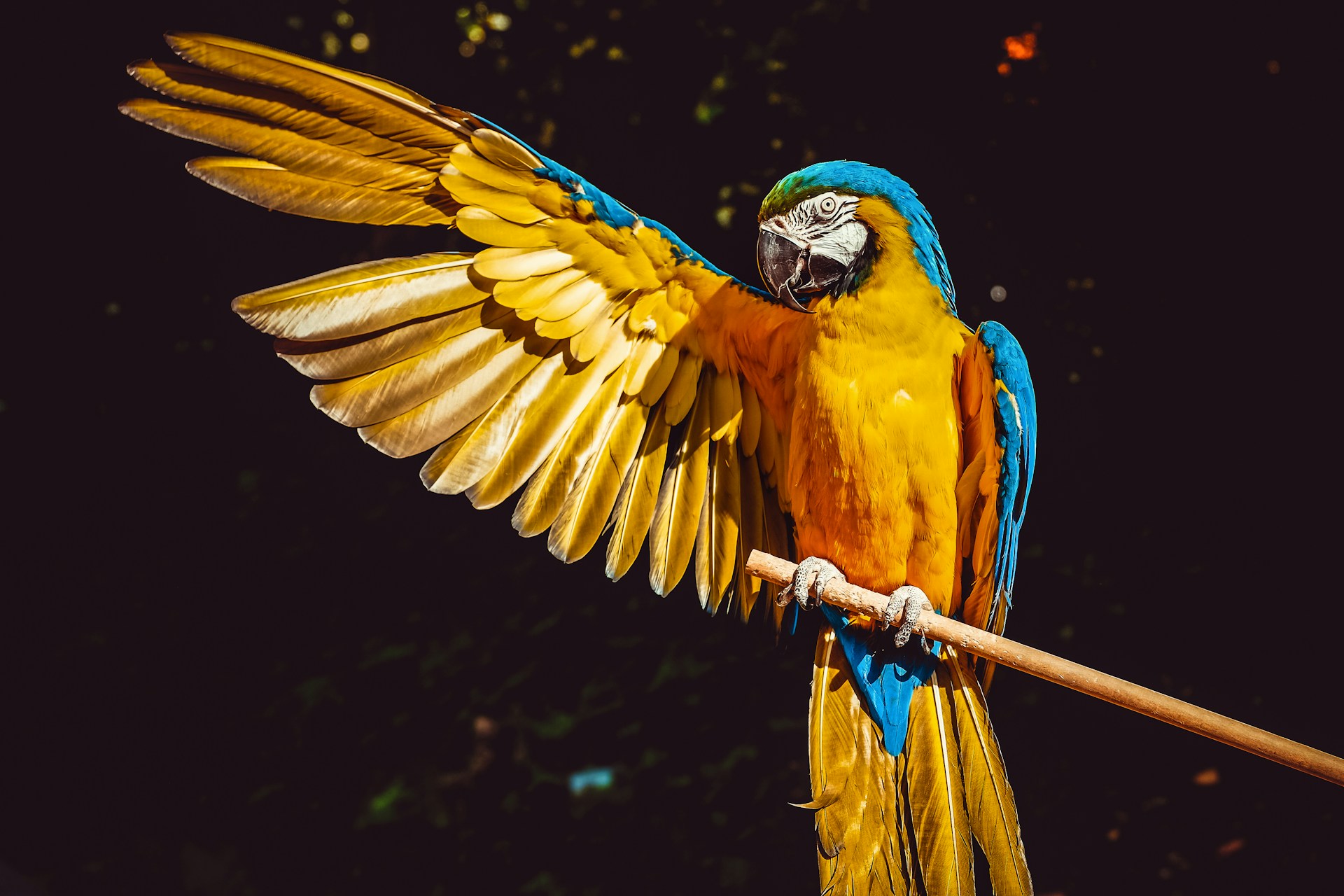
Welcome to the vibrant and multifaceted world of parrots, a group of birds celebrated for their dazzling hues, remarkable intellect, and astonishing ability to echo human voices. Whether it’s the petite, charming budgie or the majestic, stately macaw, the wide array of sizes and personalities among parrots makes them enthralling companions. This guide is your doorway into their captivating world, offering deep insights into their care, quirks, and specific needs.
Selecting Your Perfect Parrot Companion
Choosing a parrot is more than a pet; it’s embracing a lifelong companion. Lifespans vary greatly among species, ranging from 10 to a stunning 80 years. Each breed brings its unique temperament to the table. While some parrots are gregarious and vocal, others might be more reserved and tranquil. Ponder your lifestyle, the space you can offer, and the time you’re willing to invest in nurturing this new family member.
Foundations of Parrot Care
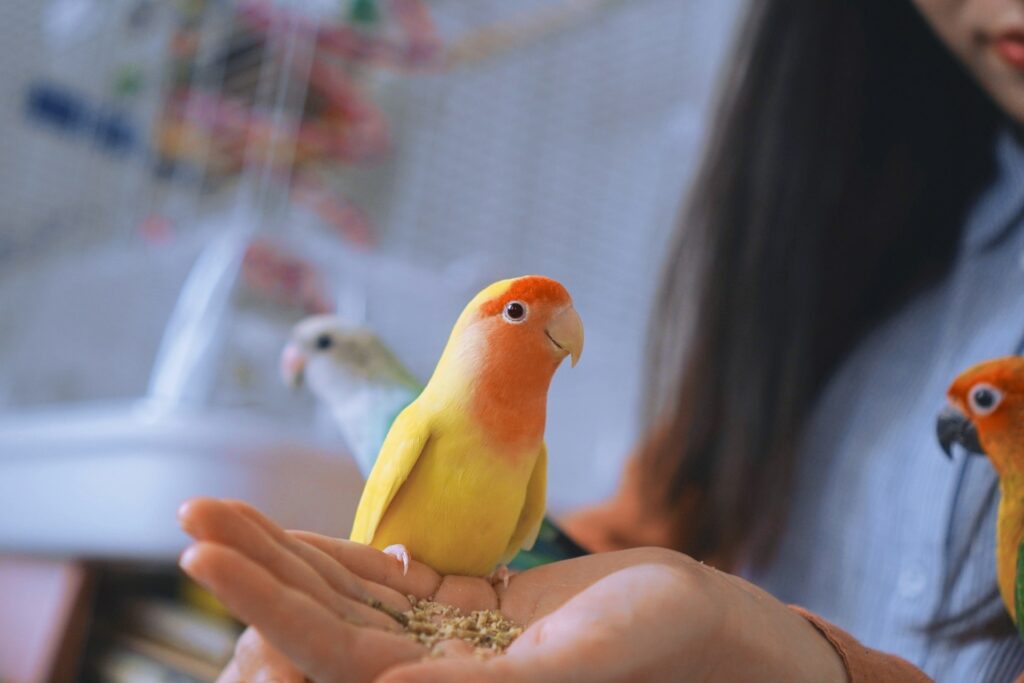
Creating a thriving environment for your parrot is fundamental to their well-being. Opt for a spacious cage that allows for flight and play, situated in your home’s draft-free, luminous area. A diverse diet is crucial; a mix of high-quality pellets, fresh fruits, and leafy vegetables will ensure your parrot stays in peak condition. And remember, access to fresh, clean water is always a must.
Decoding Parrot Behaviors
Parrots are not only intelligent but also highly social beings. They express a spectrum of behaviors from delightful play to impressive speech mimicry. Yet, they might also display signs of distress, such as feather plucking or aggression, often stemming from boredom or isolation. Grasping these behaviors is key to cultivating a nurturing and stimulating environment.
Health and Wellness Checkpoints
Routine veterinary check-ups are indispensable for your parrot’s health. Keep an eye out for symptoms like changes in appetite, lethargy, or unusual droppings, which could signal illness. Regular health assessments help prevent and address respiratory infections, feather plucking, and obesity.
A Wholesome Diet for Your Feathered Friend
A parrot’s diet should be as colorful and varied as their personality. Fresh fruits and vegetables and top-notch pellets make up the ideal diet. However, avoid avocados and chocolate, as they harm birds. Treats are welcome but in moderation.
Training: Building Bonds with Your Parrot
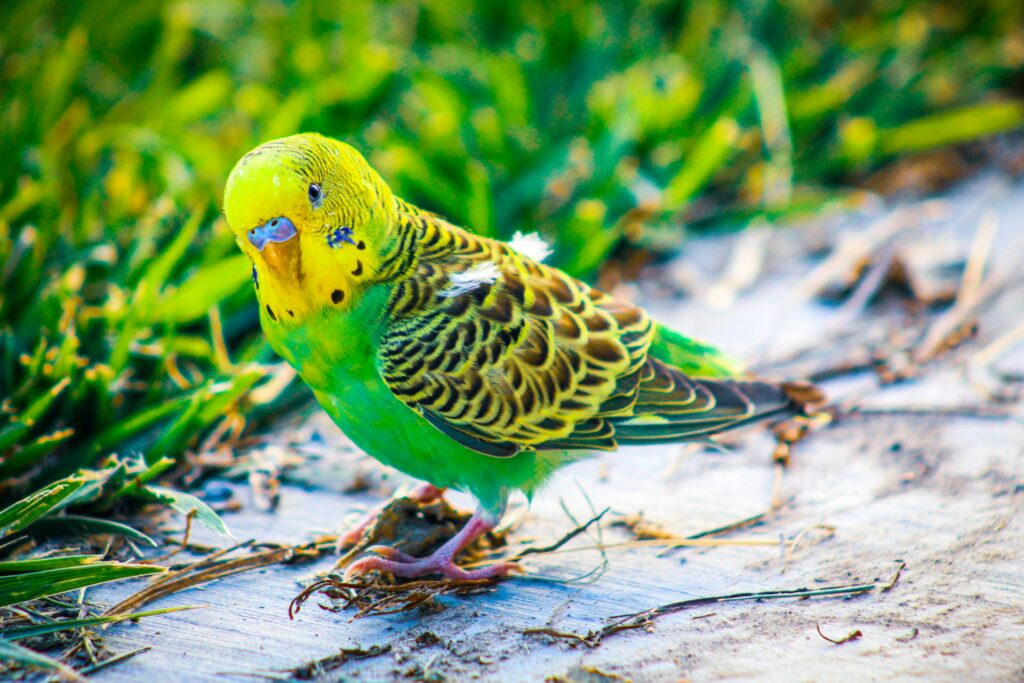
Training a parrot is an exercise in patience and consistency. Start with simple commands and gradually introduce more complex ones. Use treats and gentle verbal praise to encourage and reinforce desired behaviors. Frequent, loving interactions are the foundation of a deep, trusting relationship with your parrot.
The Art of Parrot Speech and Mimicry
Many parrots, particularly species like African Greys and Amazons, have a remarkable capacity for mimicking sounds and speech. Foster this ability through regular, gentle conversations and repeating words or phrases consistently and clearly.
Enrichment: Keeping Your Parrot Engaged
Mental engagement is as vital for your parrot as physical health. Offer an ever-changing array of toys, puzzles, and opportunities for play outside the cage. Keeping their environment dynamic and interesting is key to a mentally healthy bird.
The Social Dynamics of Parrots
Parrots are inherently social creatures. When introducing a new bird, do so gradually and with careful observation to ensure a harmonious integration and minimize stress.
Grooming and Hygiene: Essentials for Parrot Care
Regular grooming, including nail trims and occasional baths, is essential. Keeping their living environment impeccably clean is vital in preventing diseases.
Advanced Care for Mature or Breeding Parrots
Caring for senior parrots or managing breeding requires nuanced understanding and special care. Senior birds might need tailored diets or habitat modifications, while breeding parrots require nesting and egg care knowledge.
Parrot Conservation: A Responsible Approach
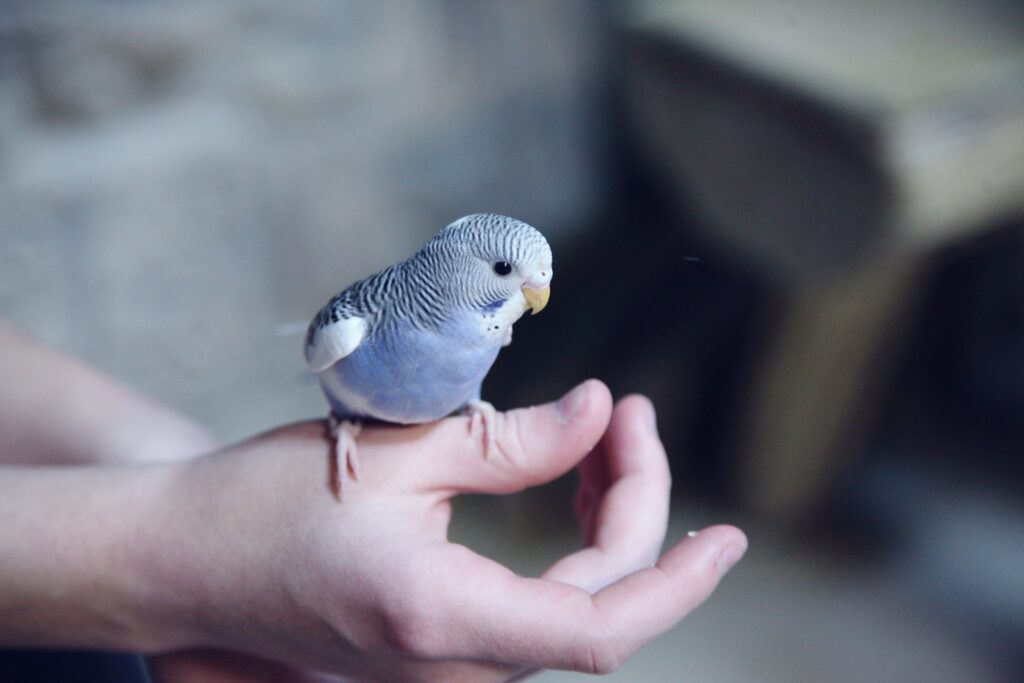
Parrots are increasingly threatened by habitat destruction and the illegal pet trade. Being a responsible parrot owner and advocating for conservation initiatives are ways you can contribute to the global efforts to protect these magnificent birds.
Solving Common Parrot Challenges
Addressing behavioral issues like screaming, biting, or feather plucking is essential. Seek advice from avian experts and recognize when professional veterinary assistance is necessary for your parrot’s health and well-being.
Conclusion
Embracing the role of a parrot parent is both fulfilling and demanding. With the right knowledge and commitment to their care, you can ensure your feathered companion’s joyous, lengthy, and harmonious life.

